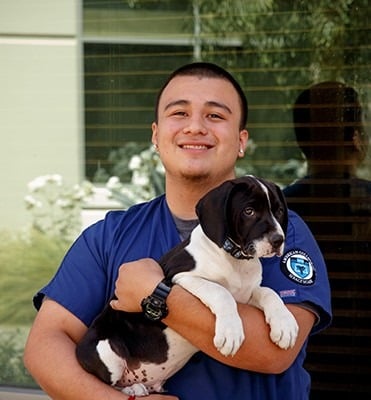American College of Healthcare and Technology’s Veterinary Assistant program is a 9-month program. Here are 10 things to make you a better student in this course.
-
Attendance- If you are not in class, or at work, you can’t learn, and you are not going to get paid. Showing up is the most important thing you can do because if you do not show up, you can’t gain knowledge, you can’t become better at what you do. It’s probably the most important trait to have because if you don’t show up, you’ll never be in a position to use the skills you need.
-
Self-Control- You need to be able to have control over yourself. You need to think before you speak because what you say can be taken as something that wasn’t meant to be interpreted that way, but the customer took it that way. You need to be able to control your mind, your actions, your emotions and your tone. You need to be in full control of yourself.
-
Self-Awareness- You need to be self-aware. You need to know your weaknesses and strengths. Everyone has them, and it is better to be aware of them than it is not. It’s easier to build on weaknesses and to show your strengths. You need to be self-aware in everything because it makes you better, and will help you get better and work on the things that need to be improved.
-
Professionalism- You need to be professional in any job you have, but especially in the veterinary field. You have to be professional with your co-workers, your superiors, your clientele; everyone you interact with you needs to be acting in a professional way. You need to be able to present yourself in a certain way and work the room, professionally.
-
Have an open mind- Having an open mind in this field is very important. Just because there appears to be something wrong with an animal does not mean that only a certain thing is causing it. You need to do your due diligence because there could be something that is causing the problem that is showing, and you don’t see it because you’re fixed on only the problem seen, and not what the underlying cause of the issue is.
-
Be adaptable- Every doctor, every animal, every pet owner, every hospital is different; you are going to need to be able to adapt to every situation that comes your way. You need to be able to roll with the punches.
-
Be an advocate for the patient- Sometimes you need to swallow your own pride and admit to a mistake. Because you are the voice for the voiceless. If you are more worried about being chewed out because you made a mistake instead of how it is going to affect the pet than it will not help you. Don’t be afraid to own up to a mistake, because it can save the pet, and you can learn from it, and not make that mistake again.
-
Don’t be afraid to ask questions- If you don’t ask the question, you won’t get an answer. Don’t be afraid to ask a question, especially in class because if you are going to be afraid to ask a question in class, it is going to be even harder to ask a vet or superior you are working for. Don’t be afraid to ask the question again if you aren’t getting it or double check what exactly you need to do or what the exact dosage is.
-
Critical thinking-Critical thinking is one of the most important things you use in college. You have to use critical thinking or learn to use it in the veterinary assistant program. It’s really important for all the modules you will use, and you need to think critically about this program because every pet is different, and every situation is different. You need to take what the teacher teaches you and modify that to the situation you will be in.
-
Always challenge yourself- Don’t be afraid to go out of your comfort zone. Challenging yourself is going to make you better than what you were before. If you don’t learn to challenge yourself, you will never learn, or never get better. There’s always something to learn, and the knowledge is always changing and evolving in the medical field if you aren’t trying to learn new things, new techniques, new anything you won’t be as good as someone who is challenging themselves to always know more.




